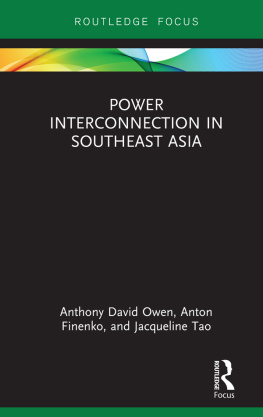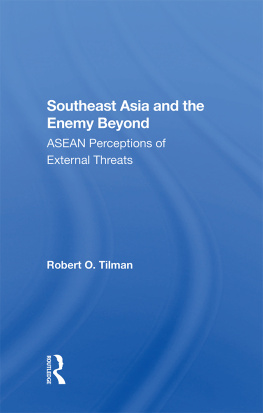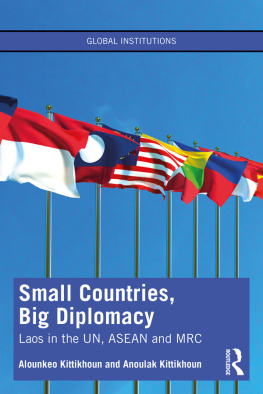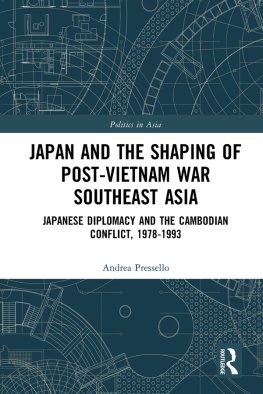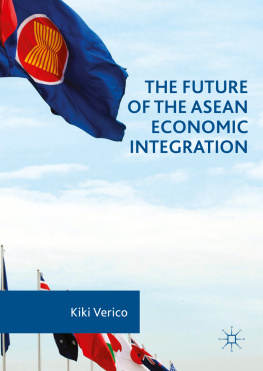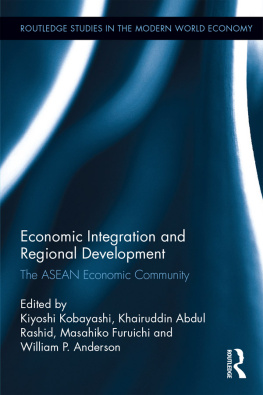
Small- and Medium-Scale Industries in the ASEAN Countries
Westview Replica Editions
The concept of Westview Replica Editions is a response to the continuing crisis in academic and informational publishing. Library budgets for books have been severely curtailed. Ever larger portions of general library budgets are being diverted from the purchase of books and used for data banks, computers, micromedia, and other methods of information retrieval. Interlibrary loan structures further reduce the edition sizes required to satisfy the needs of the scholarly community. Economic pressures on the university presses and the few private scholarly publishing companies have severely limited the capacity of the industry to properly serve the academic and research communities. As a result, many manuscripts dealing with important subjects, often representing the highest level of scholarship, are no longer economically viable publishing projects--or, if accepted for publication, are typically subject to lead times ranging from one to three years.
Westview Replica Editions are our practical solution to the problem. We accept a manuscript in camera-ready form, typed according to our specifications, and move it immediately into the production process. As always, the selection criteria include the importance of the subject, the work's contribution to scholarship, and its insight, originality of thought, and excellence of exposition. The responsibility for editing and proof-reading lies with the author or sponsoring institution. We prepare chapter headings and display pages, file for copyright, and obtain Library of Congress Cataloging in Publication Data. A detailed manual contains simple instructions for preparing the final typescript, and our editorial staff is always available to answer questions.
The end result is a book printed on acid-free paper and bound in sturdy library-quality soft covers. We manufacture these books ourselves using equipment that does not require a lengthy make-ready process and that allows us to publish first editions of 300 to 600 copies and to reprint even smaller quantities as needed. Thus, we can produce Replica Editions quickly and can keep even very specialized books in print as long as there is a demand for them.
About the Book and Authors
Small- and Medium-Scale Industries in the ASEAN Countries: Agents or Victims of Economic Development?
Mathias Bruch and Ulrich Hiemenz
Even though small- and medium-scale industries (SMIs) in developing countries are assumed to have great potential for generating income and employment, little is known about their actual performance. In this comparative study of SMIs in the five member countries of the Association of Southeast Asian Nations (ASEAN), Drs. Bruch and Hiemenz use data on performance of SMIs in the 1970s to show that they can significantly contribute to industrial growth and employment creation--but success is dependent on upgrading technology and adjusting product mix. They argue that traditional SMIs, which use simple technologies and produce simple consumer goods, must be replaced by enterprises that supply products for industrial use and manufacture export goods. Modernization, however, has been impeded by industrialization, trade, and credit policies that have favored the development of large-scale industries. The authors conclude that the viability of the SMI sector is critically dependent on changes in these restrictive policies and on programs to promote SMIs. They discuss the design of development policies that will create a macroeconomic environment in which SMIs can not only offer employment and income, particularly to less privileged sectors of the work force, but can also act as vital links in the chain of intra-industrial cooperation.
Mathias Bruch was a research fellow at the Kiel Institute of World Economics for eight years and is currently an officer for the Federal Ministry of Economics. He has written widely on the subject of small-scale establishments. Ulrich Hiemenz was formerly senior economist for the Asian Development Bank and is now head of development for the economics department of the Kiel Institute. He has written many publications on economic development and trade.
Small- and Medium-Scale Industries in the ASEAN Countries
Agents or Victims of Economic Development?
Mathias Bruch and Ulrich Hiemenz
First published 1984 by Westview Press, Inc.
Published 2019 by Routledge
52 Vanderbilt Avenue, New York, NY 10017
2 Park Square, Milton Park, Abingdon, Oxon OX14 4RN
Routledge is an imprint of the Taylor & Francis Group, an informa business
Copyright 1984 Taylor & Francis
All rights reserved. No part of this book may be reprinted or reproduced or utilised in any form or by any electronic, mechanical, or other means, now known or hereafter invented, including photocopying and recording, or in any information storage or retrieval system, without permission in writing from the publishers.
Notice:
Product or corporate names may be trademarks or registered trademarks, and are used only for identification and explanation without intent to infringe.
Library of Congress Catalog Card Number: 84-50860
ISBN 13: 978-0-367-28737-5 (hbk)
The role of small- and medium-scale industries (SMIs) in economic development has been given increased attention by both economists and policy makers in recent years. Unsatisfactory employment records of conventional industrialization strategies revived economic research on the smaller, labor-intensive units of production and induced many governments of developing countries to embark on special promotion programs. All these efforts have been hampered by a lack of detailed information on the characteristics of small-scale enterprises and an insufficient understanding of the interdependence between macroeconomic development strategies and sector-specific government intervention. The purpose of this study is to provide new insights into these important aspects of SMI development based on a comparative empirical analysis of the member countries of the Association of South East Asian Nations (ASEAN). The policy conclusions drawn in the study are addressed to economists and policy makers alike.
Work on the study was carried out in 1980-1982 at the Kiel Institute of World Economics (Kiel, West Germany) with financial support by the Stiftung Volkswagenwerk (VW Foundation). The completion of the study would have been impossible without the assistance provided by the government statistical offices of Malaysia, the Philippines and Singapore. We have also benefitted considerably from the advice of many government officials and economists from ASEAN countries to whom we owe our deep gratitude. The Asian Development Bank in Manila provided the opportunity to rewrite and supplement a first report on the project drafted in German. The final manuscript was completed in November 1983.
Finally, we should like to acknowledge the constant encouragement and constructive criticism of Herbert Giersch and Juergen B. Donges, Kiel Institute of World Economics, and of Seiji Naya and Madhab Godbole, Asian Development Bank. Barbara Bu had to bear with our many revisions in order to prepare the final manuscript.


